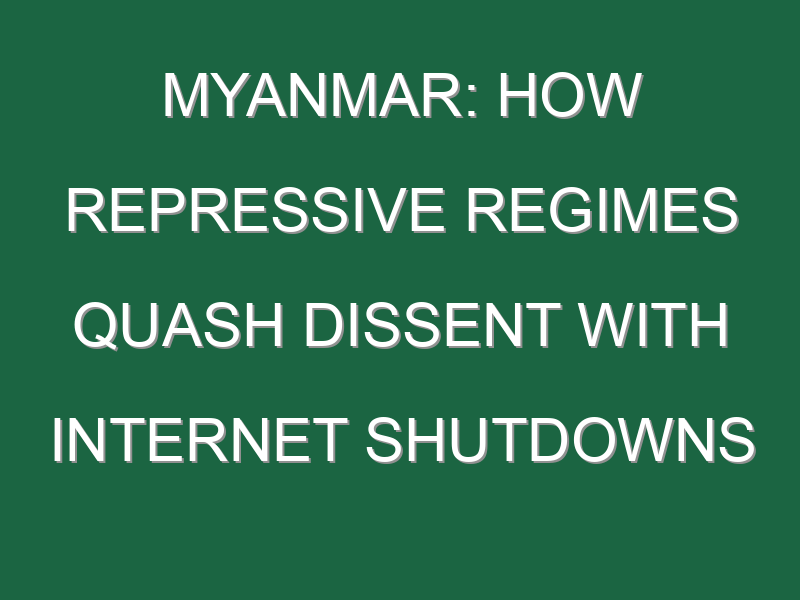Ten years ago, a desperate Egyptian government, led by then-President Hosni Mubarak, ordered the nation’s Internet to be shut down, a ploy to stymie pro-democracy protests.
The move backfired. The countrywide service outage, ironically, drew more people outdoors to learn what was going on. As bigger crowds took to city streets, the so-called Arab Spring uprising swelled—ultimately forcing Mubarak to resign. (Little else in Egypt and across the region changed, sadly.)
Egypt’s extraordinary maneuver, while not unprecedented, became the most visible example of a political leader flipping the “kill switch” and plunging a citizenry into digital oblivion. The tactic has been taken up with zeal—and to far greater success—by other repressive regimes since, says Doug Madory, director of Internet analysis at IT network observatory Kentic, who has been studying such outages for years.
Government-directed Internet shutdowns are, troublingly, on the rise. Such outages occurred 213 times in 2019, up from 196 instances in 2018, the latest years for which data are available, per Access Now, a nonprofit group that advocates against Internet shutdowns. (The group says its report covering 2020 is slated to publish later this month.)
Uganda is one recent Internet-severing offender. Last month the country implemented a five-day shutdown on the eve of a hotly contested presidential election. The United States, an important military ally, is said to be considering censuring the supposed victor, incumbent President Yoweri Museveni, over allegations of violence and election fraud.
Uganda’s action isn’t even the latest example of a blackout. Myanmar pulled the plug during a military coup d’état this weekend, as Aaron noted in yesterday’s newsletter. The country has a long history of such chicanery—including an incident in 2007 that predates even Egypt’s seminal service disruption.
The Internet is not an unalloyed good, of course. Two years ago, Facebook—a company whose services are essentially synonymous with the Internet in Myanmar—acknowledged that it wasn’t “doing enough to help prevent its platform” from being abused to contribute to a genocide of Myanmar’s Rohingya ethnic minority.
But as damaging as the Internet can be when it’s up, it can be more so when it’s down. Since Facebook’s admission, Myanmar’s government has taken to shrouding its conflict-torn regions in the darkness of disconnection to cover up its atrocities and campaigns of persecution. “Every shutdown is a massive violation of human rights,” says Peter Micek, general counsel at Access Now.
Internet shutdowns “hurt ordinary people by depriving us of our fundamental rights to access information, to connect with family members, and they also put our physical safety at risk,” Micek says. The COVID-19 pandemic heightens the stakes as outages render emergency services and health, safety, and travel information inaccessible.
Some weeks ago, when the United States was contending with its own insurrection, I discussed the nature of coups d’etat and how, last century, usurpers tended to seize TV stations before storming presidential palaces. The examples of Egypt, Uganda, and Myanmar signal an evolution of the power-grab playbook. The media formats have changed, but the strategy remains the same: Restrict the free flow of information.
Tyranny adores a vacuum.
Robert Hackett
Twitter: @rhhackett




